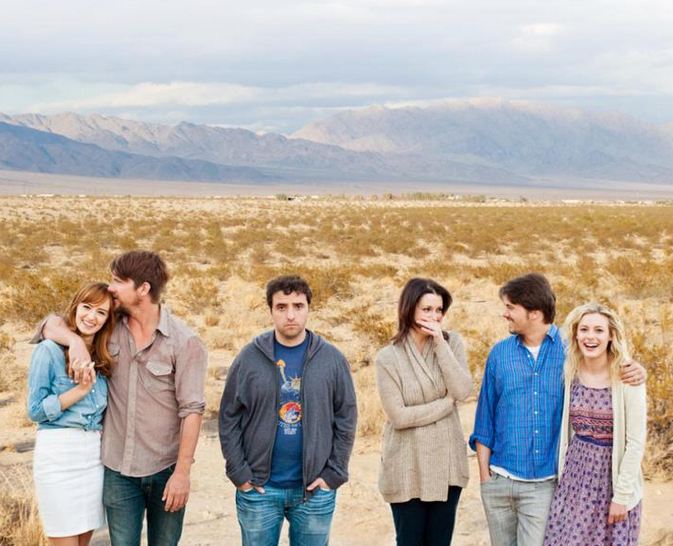
Casting Recognizable Actors in Your Low Budget Indie Film
Today’s guest post is from Thomas Beatty, writer and co-director of The Big Ask. Beatty offers his advice about one of the things we are hearing over and over again from sales agents, the power of the “star” cast to encourage significant distribution offers. This is especially true for indie dramas that are incredibly difficult to sell without notable cast to market.
When it comes to distribution, one of the best things you can do to help your movie is to get recognizable actors with whom your audience already has a positive relationship. While I would never recommend choosing fame over talent, why not aim high and try to get that dream person who is an amazing actor and also brings an audience with them? While you may not get a legitimate movie star, that doesn’t mean you can’t get someone who is incredibly talented and make it a hundred times easier on yourself to get distribution and visibility for your movie. Below are some things that we found incredibly helpful in putting together our dream cast.
1. Write for actors.
Whether you yourself are a writer or you’re looking around for material to produce or direct, look for parts and stories that will specifically appeal to actors. Like in all endeavors, you have your best chance of being successful if everyone involved is getting something they want. On your low-budget indie, you can’t make a fair money trade, but you can give actors the opportunity to do special work and to expose their audience and other filmmakers to parts of their range they haven’t gotten to show before. I was an actor for years and am the son of an actor. I feel that one of my strengths as a writer is being able to write parts that help actors do their best work. All the performances in our movie are incredible and I hope that the script and our style of directing helped in that.
If you’re not an actor, consider reading some seminal books on acting and its different techniques. You could also ask a talented actor you know how they break down a script and consider that when choosing your story. Ask yourself if your script does everything it can to help an actor do their best work or whether it’s fighting the actors and asking them to make up for the script’s deficiencies. Is it clear what the characters want scene by scene and over the entire arc? Do they get the opportunity to really change? Actors are often great judges of material. Don’t go to them with something unless you truly believe it’s great.
The script for The Big Ask was the fifteenth or so that I had written and the first I tried to make because it was the first I thought was good enough. Beyond being good enough, I thought it would stand out as unique in the pile of scripts that most recognizable actors have in front of them.

2. Find a good casting director.
Everyone wants to feel safe and supported when embarking on a creative enterprise that will leave them incredibly vulnerable. Knowing that a casting director they respect believes in the project is a huge advantage. Everyone knows they’re going to have to work incredibly hard to get the eyes of known talent on their script, but why not start with known casting talent? We got incredibly lucky when Rich Delia, then of Barden Schnee Casting, took on our script. They cast bigger, award-winning movies like Winter’s Bone and The Help and every actor knows them and respects them.
When they agreed to cast the movie within our budget constraints, it was the first, and perhaps biggest, break in our preproduction process. While it’s incredibly helpful to have a great casting director, don’t spend a quarter of your budget on a casting director that begrudgingly agrees to take you on. Make sure they believe in your movie, or they won’t give it the attention you want them to give it. No matter what, you’ll be fighting for time against other movies that are paying their salaries and their rent. Make sure they want to be working on your movie.
3. Plan your shoot around TV shooting schedules.
When deciding when to shoot your movie, take into consideration when TV shows are shooting. We shot during the second half of pilot season. Our thought was we would get people after they’d shot their pilots but before they started their season. That time is often when network shows are on leave as well. As cable channels and even networks no longer have a set season, it becomes more difficult to schedule around television work, but it’s still worth considering, especially if you have one or two principal actors. Some people also schedule their short indies during the vacation periods like Christmas, but then you run the risk of people wanting to be with their families. We had to schedule around 6 principals in our ensemble. Hopefully you will be primarily worried about one or two actors.
4. Pick specific actors with something to gain.
Part of the reason we put so much stress on TV schedules was the belief that our best chance of getting interest from more established actors would be to focus on really talented actors doing very specific things on television who might be looking to stretch their range. Gillian Jacobs does amazing work on “Community,” but is she using all the tools she learned at Julliard? At the time we were casting, David Krumholtz was just finishing the pilot for “Partners.” We’d loved watching David for years and knew that he could easily transition from a multicam to an indie. When we cast him he laughed and said “I can’t believe you gave this part to a Jew!” He then went on to thank us for believing he could carry a movie in such a dramatic role. He said that he relished the opportunity to do parts like this. Don’t be afraid to try to think from the perspective of actors and trust your intuition about which actors out there have more to offer than they’re getting to show.
In our case, working with an ensemble of other great actors was part of the appeal. But often, part of what an actor wants to show is that they can carry a movie. David certainly was the center of our movie and I know that playing the lead appealed to him. Often approaching an actor with the opportunity to be at the center of a movie and be responsible for carrying it can make your movie stand out if mostly they spend their time playing supporting roles.
There are so many things that you have to think about when putting together a small movie. It’s nearly impossible to make something even half-way good, and equally as difficult to get people to pay attention to it. Reaching high with your casting is just one thing you can do to help yourself along. While every rule in indie filmmaking is there to be broken, trying hard to cast recognizable, talented actors can only help you.

THE BIG ASK’s co-directors Rebecca Fishman and Thomas Beatty
THE BIG ASK is Thomas Beatty’s first feature film as director. He has previously shot a number of short films, and along with his writing partner, Matthew Gasteier, he is repped by UTA and has projects in development with Broken Road and Scott Stuber Productions, among others. During his five years at Lakeshore Entertainment, Beatty helped guide thirteen films from script to screen including UNDERWORLD 3 and CRANK.
THE BIG ASK is now available on various digital platforms including iTunes.
Sheri Candler May 28th, 2014
Posted In: Distribution, iTunes, Marketing
Tags: casting director, David Krumholtz, Gillian Jacobs, independent film distribution, Rebecca Fishman, Rich Delia, screenwriting for directors, star driven cast, Thomas Beatty, TV pilot schedules